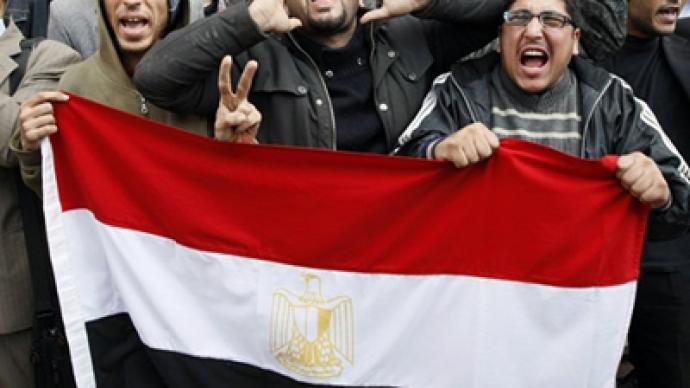In an attempt to mend Cairo’s relations with other countries, the foreign minister of a new post-revolution Egypt has visited Moscow. Syrian unrest, NATO’s actions in Libya, talks between Israel and Palestine were among the issues on the table.
The visit of Cairo’s Mohamed Kamel Amr to Russia was initially planned to take place last week. However, it had to be postponed due to the Arab League’s meetings on Syria, where the organization had sent the observers.The Arab League has its headquarters in Cairo, and it is part of the reason that Egypt is directly involved in Syrian affairs. Syria has also become one of the issues dominating the talks in Moscow. Russian Foreign Minister Sergey Lavrov has praised the fact that the observers were finally allowed into Syria. Both Russia and Egypt have both strongly criticized the violence in the country, but pointed out they stand against any military intervention."We maintain permanent contacts with the Syrian leadership. We call on to cooperate with LAS observers and create the most comfortable conditions for the work," Itar-Tass quoted FM Lavrov, who was speaking at a press conference after the talks with his Egyptian counterpart. Lavrov also urged the Syrian opposition to ignore provocative calls.Egypt is an important regional player and has co-sponsored talks on such complicated issues as the Middle East peace process – another topic discussed during the current Moscow visit of the country’s foreign minister. Russia and Egypt have called to resume direct talks between Israel and Palestine."We are at one in thinking that the world community should take all possible efforts to resume direct talks between Israel and Palestine," Sergey Lavrov said.Despite acting in accord on the Syrian and Palestinian issues, Egypt has not decided yet whether it will support Russia in its demand for an international investigation into NATO actions in Libya."We are seriously considering this issue. We will make a decision after these consultations," Mohamed Amr said according to Interfax.Meanwhile, the situation in Egypt itself is far from stable at the moment, with violent protests still going on amid parliamentary elections.The second round of the elections is soon to take place, and the new parliament is expected to begin its work by the end of January. So far, several Islamist-oriented parties, such as the Muslim Brotherhood, have gained around 70 per cent of the votes after the first round of the elections.
There is an Islamic awakening in the Arab world, Egyptian journalist Osama Diab told RT, but he does not think it will contradict democratic principles. “In many Arab countries secularism has been imposed by authoritarian rulers,” said Diab. "The Muslim Brotherhood now wants to bring change through Parliament. They have assured people they believe in political plurality and representative democracy. They have denounced violence. We will have to wait and see.”

